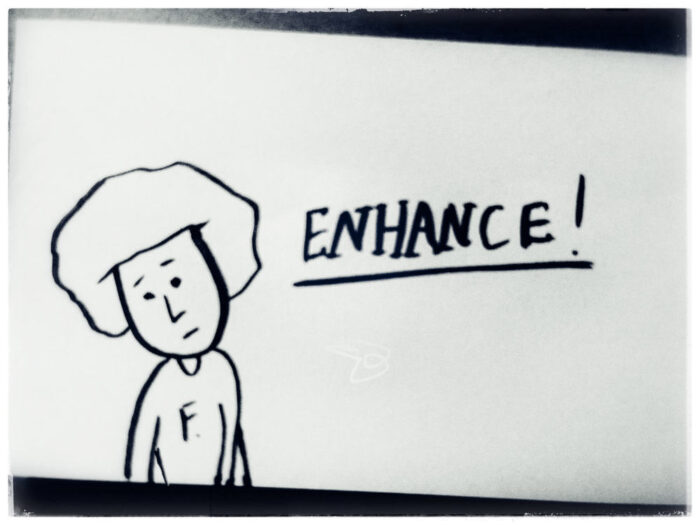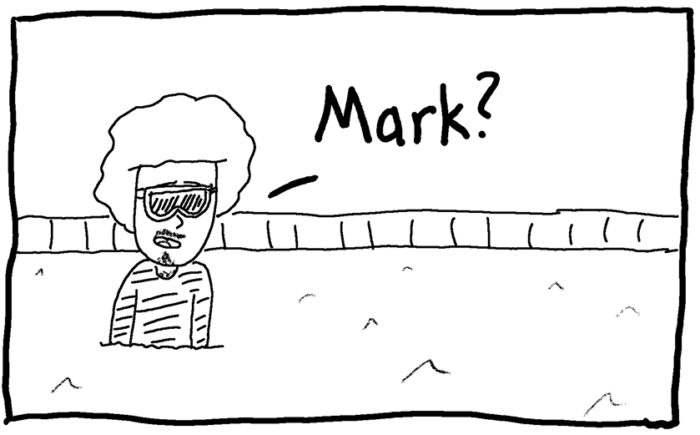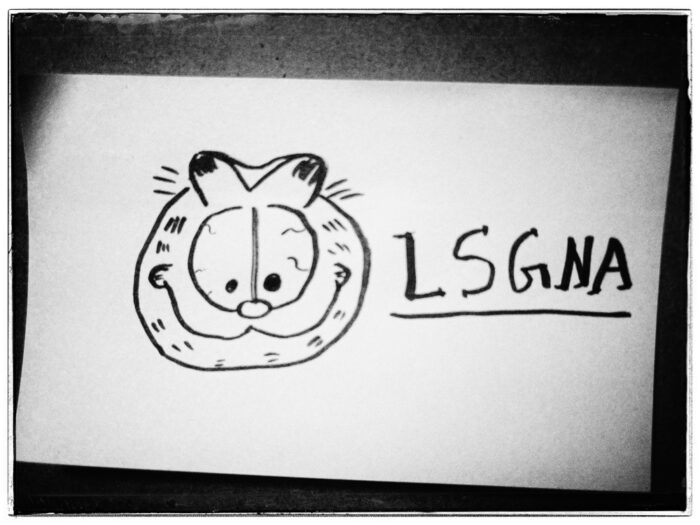
I got up early this morning to do my meditation and coffee routine, which is, essentially, just me using Headspace while I wait for coffee to finish brewing. One part of dealing with depression and anxiety is becoming aware that building habits is one of the best ways to combat that kind of illness. You’ve got to take regular, positive steps, and it’s good to get those habits to a point where, like brushing your teeth, they become something that you just do every day without thinking about it. It’s the thinking that gets you — think too much and you’ll think yourself into not doing.
So far, I’ve been pretty successful at meditating each morning at 5:00 am., which is not a thing I ever thought I’d be able to say.
People in my family have always settled into being obscenely early risers as they’ve aged. When I was young, I didn’t understand this phenomenon. At all. I watched my mother wake up every morning at 4:00 and thought, “Why on Earth would anyone choose to wake up at that time?” Especially in winter, when your bed is like a fortress set against the freezing darkness of a February morning, who is chomping at the bit to get up and leave the house? I thought people were nuts for making themselves get out of bed any earlier than they absolutely had to.
The mistake in my reasoning was thinking that my mother had a choice in the matter. I’m beginning to think that she, like me and my brothers, was driven by anxiety. I absolutely can’t lie in bed in the morning thinking about the upcoming day anymore — it drives me batty. I have to get up and do things because, well, the alternative is stewing in anxious juices waiting for my alarm to go off, all the while wondering, Why do I feel so bad? Why do I feel so bad? Why do I feel so bad?
I remember once in high school asking a good friend of mine, “How do some people wake up every morning full of energy and excited to tackle their day?” I’d seen it happen in movies and on TV, so I thought it must have been possible.
My friend, who was smarter than I, said, “I don’t think those people are real.”
My new Kindle Scribe arrived over the weekend. I’ve had a few days to play with it and, I’ve got to say, it is the best e-reader I’ve ever used. While I’m not a fan of Amazon as a company, I’m fairly invested in that ecosystem (I have quite a few Kindle and Audible books), and the Scribe was just about half the price of the other e-reader I was considering: the Remarkable.
The thing that I like about it — the reason that I upgraded from my Kindle Paperwhite — is the size of the screen. Most e-readers are just too small for my taste, but the Scribe has a 10.2 inch screen, which is about the size of a page in a hardcover book. A lot of people might not think it’s too important, and that’s fine, but I like to get an idea of paragraph size as I’m reading, and that’s hard to do if the screen isn’t big enough to hold several paragraphs.
I can see, for example, when I’m about to encounter one of Salman Rushdie’s convoluted wall-o-texts about the war in Kashmir before it happens. I can steel myself; I can be mentally prepared to misunderstand whole swaths of text.
I’ve made some leaping strides into Midnight’s Children since I got the new Kindle, and matters are not improving. I think I’m getting too caught up in the character-driven nature of this book. The whole thing just seems … aimless.
There’s this whole ham-handed metaphor in which the narrator’s congested nose somehow represents the struggle for communication between the different aspects of India after they gained independence. I don’t know if I’m supposed to find it funny or sad or what. Mostly, I’m just confused. There are so many characters that I don’t see the point of, too many events that don’t matter at all.
And the plot is so tied up in India’s history that you never get a sense of trajectory. Where is all this going? Does it so closely mirror India’s history that it is untraceable? Is Rushdie trying to make a point here, or is he doing a Robert Frosty have-your-cake-and-eat-it-too sort of thing?
I don’t know, but I am very much looking forward to being done with this book.



